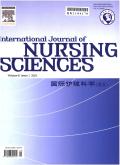Self-management behavior preferences and influencing factors in Chinese patients with recurrent gout: A qualitative study
IF 3.1
3区 医学
Q1 NURSING
引用次数: 0
Abstract
Objectives
This study aimed to explore the preferences and influencing factors of self-management behaviors in patients with recurrent gout and provide a theoretical basis for developing targeted strategies to improve self-management preferences.
Methods
A total of 10 patients with recurrent gout were recruited from the gout specialist outpatient clinic at a tertiary hospital in Shenyang, Liaoning Province, China. Semi-structured interviews were conducted with these patients, and the Kawakita Jiro (KJ) method was used to analyze the interview data.
Results
After four rounds of screening by five researchers, 35 codes were selected from an initial 132. After three rounds of discussion and induction, the KJ method identified seven domains of self-management behavior preferences in patients with recurrent gout: 1) extensive knowledge of gout, yet difficulty in distinguishing between accurate and inaccurate information; 2) a passive attitude of “no pain, no management”; 3) the challenge of changing entrenched daily habits; 4) the optimistic but unrealistic belief of “self-delusion”; 5) a tendency to seek medical attention late due to hopelessness of cure and familiarity with recurrences; 6) preference for analgesics for gout recurrences while neglecting long-term urate-lowering therapy (ULT); and 7) gout-related stigma.
Conclusion
The results of this study showed that the self-management behavior of patients with recurrent gout could be improved, especially in the aspects of medical seeking behavior, medication compliance, daily management and emotional management. At the same time, we found that gout stigma, difficulty in distinguishing true and false knowledge of gout and negative attitude of “ignoring pain” were significantly associated with self-management behavior.
中国复发性痛风患者自我管理行为偏好及其影响因素的定性研究
目的探讨复发性痛风患者自我管理行为偏好及其影响因素,为制定有针对性的改善自我管理偏好的策略提供理论依据。方法选取沈阳市某三级医院痛风专科门诊10例复发性痛风患者。对这些患者进行半结构化访谈,采用KJ法对访谈数据进行分析。结果经过5位研究人员的4轮筛选,从最初的132个编码中筛选出35个。经过三轮讨论和归纳,KJ方法确定了复发性痛风患者自我管理行为偏好的七个领域:1)痛风知识广泛,但难以区分准确和不准确的信息;2)“不疼不管”的被动态度;3)改变根深蒂固的日常习惯的挑战;4)乐观但不切实际的“自欺欺人”信念;5)由于治愈无望和熟悉复发,倾向于晚求医;6)痛风复发首选镇痛药而忽视长期降尿酸治疗(ULT);和痛风相关的耻辱。结论反复发作性痛风患者的自我管理行为可得到改善,尤其是在就诊行为、用药依从性、日常管理和情绪管理等方面。同时,我们发现痛风污名化、难以区分痛风真假知识和“忽视疼痛”的消极态度与自我管理行为显著相关。
本文章由计算机程序翻译,如有差异,请以英文原文为准。
求助全文
约1分钟内获得全文
求助全文
来源期刊

International Journal of Nursing Sciences
Nursing-Nursing (all)
CiteScore
6.10
自引率
2.60%
发文量
408
审稿时长
25 days
期刊介绍:
This journal aims to promote excellence in nursing and health care through the dissemination of the latest, evidence-based, peer-reviewed clinical information and original research, providing an international platform for exchanging knowledge, research findings and nursing practice experience. This journal covers a wide range of nursing topics such as advanced nursing practice, bio-psychosocial issues related to health, cultural perspectives, lifestyle change as a component of health promotion, chronic disease, including end-of-life care, family care giving. IJNSS publishes four issues per year in Jan/Apr/Jul/Oct. IJNSS intended readership includes practicing nurses in all spheres and at all levels who are committed to advancing practice and professional development on the basis of new knowledge and evidence; managers and senior members of the nursing; nurse educators and nursing students etc. IJNSS seeks to enrich insight into clinical need and the implications for nursing intervention and models of service delivery. Contributions are welcomed from other health professions on issues that have a direct impact on nursing practice.
 求助内容:
求助内容: 应助结果提醒方式:
应助结果提醒方式:


